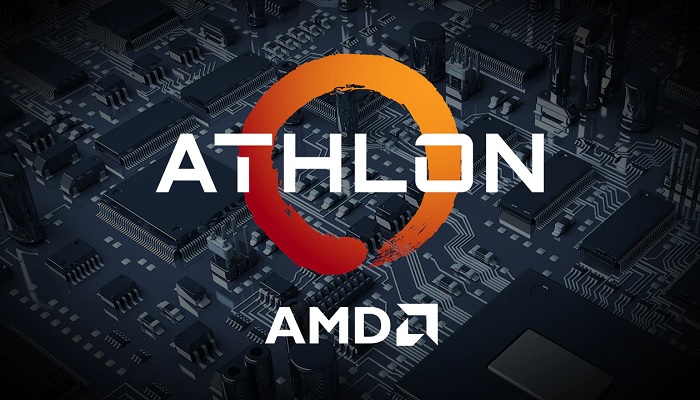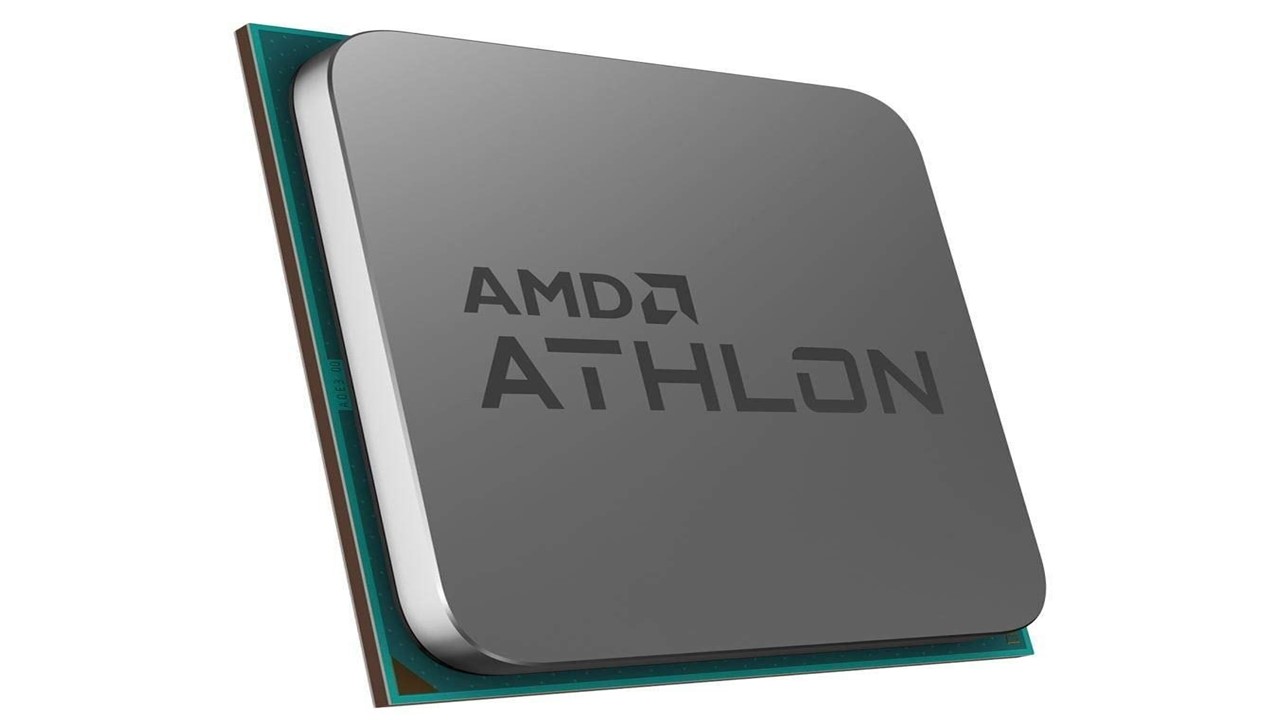In This Article
What is Athlon?
Athlon refers to the brand name of the processors designed and produced by Advanced Micro Devices or AMD that are compatible with a series of x86 microprocessors.
From a technical point of view, the term refers to the 32-bit processors built on the K7 microarchitecture of AMD that offer a high performance.
KEY TAKEAWAYS
- The Athlon processors are built on the K7 architecture of AMD and offer significantly high performance.
- These microprocessors usually support four types of cores namely, Argon, Pluto, Orion and Thunderbird.
- From the original Athlon Classic, released on June 23, 1999, a lot of changes have been made to produce the Zen-based models with a Radeon graphics processor.
- These processors are good entry-level to mid-level series of processors and are good to use in budget level and mid-level computer systems.
- Athlons are good for simple office and day to day work such as word processing, web surfing, casual editing and entertainment work and certainly not for playing games.
Understanding Athlon

Athlon is quite a popular computer processor from the house of AMD that comes with varied features and functionalities.
It supports Front Side Bus of different frequencies, can operate at variable speeds and supports different memory modules.
Athlon Classic is the original Athlon and was considered to be the first x86 CPU usable in desktop computers belonging to the 7th generation and had the features that helped it to operate at a speed of 1 GHz. This high-end processor made its debut on June 23, 1999.
Over the years, there have been a lot of changes made in Athlon. Some of the notable changes are:
- The Athlon II
- A 64-bit Athlon 64 architecture and
- Accelerated Processing Unit or APU chips.
The APU chips are targeted at the Socket AM1 System on Chip or SoC architecture of desktop and the Socket AM4 Zen microarchitecture as well.
The later Zen-based models that came in and around 2019 were equipped with a Radeon graphics processor. These are considered to be one of the highest performing entry-level processors.
Athlon typically is recognized by its four particular iterations of cores as follows.
Argon core:
Released in 1999, different variants of Argon core-based processors used Slot A and had a DDR or a Double Data Rate FSB operating at 100 MHz with an effective speed of up to 200 MHz.
Manufactured in a 250 nm process, the microprocessors could operate within a frequency ranging between 500 MHz and 700 MHz with a Level 2 cache of 512 KB and a Thermal Design Power or TDP ranging between 42 watts and 50 watts.
Pluto core:
Different variants of processors based on this core were released in late 1999 and early 2000 and also used Slot A and a DDR FSB of the same capacity but were manufactured in the 180 nm process.
The operating range was higher, typically ranging between 550 MHz and 950 MHz with 512 KB of L2 cache and a TDP ranging between 31 watts and 62 watts.
Orion core:
Using the same Slot A, the Athlon 1000 microprocessor with this core could operate at a frequency of 1000 MHz with a 512 KB L2 cache and a TDP of 65 watts.
Thunderbird core:
The different modes of processors based on Thunderbird came with both the cartridge type Slot A and a PGA or Pin Grid Array Socket A.
Their operating frequencies range between 650 MHz and 1400 MHz with a lower L2 cache size of 256 KB and a TDP ranging between 36 watts and 72 watts.
There are also a few high-performing Athlon chips that support quite a few supercomputers as well.

How Fast Is AMD Athlon?
The original Athlon microprocessors had an operating frequency of 500 MHz which subsequently was increased in the later versions up to 3.5 GHz for the Zen-based models.
The clock speeds of the different AMD Athlon processors can be broken down as follows.
Athlon Classic:
The Athlon Classic processors can operate at a speed ranging between 500 MHz to 700 MHz and 550 MHz to 1000 MHz respectively for the K7 and K75 architectures.
Athlon Thunderbird:
The 2nd generation Thunderbird versions can operate at a clock rate ranging between 650 MHz and 1000 MHz with the ones with Slot A.
The ones with Socket A 100 MHz FSB B-models could operate at a speed ranging between 600 MHz and 1400 MHz and those with Socket A and 133 MHz FSB C-models operate at cock rate ranges of 1000 MHz and 1400 MHz.
Athlon XP:
The operating speeds of the Athlon XP Palomino processors range between 850 MHz and 1400 MHz in Athlon 4, 1333 MHz and 1733 MHz in the Athlon XP and 1000 MHz and 1733 MHz in the Athlon MP variant.
Athlon Thoroughbred:
The clock rate of the 4th generation Thoroughbred core-based Athlon processors ranges between 1400 MHz and 1800 MHz in Thoroughbred A, 1400 MHz and 2250 MHz in Thoroughbred B, 1400 MHz and 2133 MHz in those with a 133 MHz FSB, and 2083 MHz and 2250 MHz in those with a 166 MHz FSB.
Athlon Barton:
The operating speed of the 5th generation Athlon Barton core 130 nm processors ranges between 1833 MHz and 2333 MHz, 1857 MHz and 2133 MHz in those with the uncommon 133 MHz FSB, 1833 MHz and 2333 MHz in those with 166 MHz FSB, and 2100 MHz and 2200 MHz in those with 200 MHz FSB.
Athlon Thorton:
The operating speeds of the 5th generation Athlon Thorton core 130 nm processors are 1667 MHz and 2200 MHz, and 1600 MHz and 2133 MHz, 2083 MHz, and 2200 MHz for the similar FSB parameters.
Zen-based Athlon:
And, the Zen-based Athlon processors have an operating frequency ranging between 3.2 GHz to 3.2 GHz.
How Many Cores are There in AMD Athlon?
Typically, the major part of the AMD Athlon processors comes with two cores but there are a few specific variants that are available with four cores in them, but these are usually rare.
For example, the Athlon X4 860K processor comes with the following features:
- Four cores
- A base clock speed of 3.7 GHz
- A maximum turbo frequency of up to 4.3 GHz
- 28 nm lithography
- 4 MB of cache memory
- An FM2+ socket and
- Both 32 bit and 64 bit processing support.
Is Athlon Good for Gaming?
No, the AMD Athlon processors, being entry level CPUs, are typically not suitable for gaming. It does not come with a strong CPU and it does not even have a considerably potent integrated graphics card.
Therefore, the majority of its variants will not even support playing those basic online games and eSports titles.
However, there is a catch in the word ‘majority’ mentioned above.
Though the AMD Athlon processors are the weakest among all processors of this brand, there may be a few specific variants of AMD Athlon processors, especially the later versions, that can support playing a few games.
But then again, it will depend on a few specific factors such as:
- The model of the processor in question
- The types of games you want to play and
- The graphics and other requirements of the game and those available in your system.
If these conditions are suitable, then a few specific AMD Athlon processors may support playing light games only for those users who are on a very tight budget.
The eSports in particular are designed to be played by the masses and typically have a low system requirement and so you can play them. Once again, the type of game is a big question.
So, to summarize, a few specific desktop Athlon CPUs may be sufficient to allow playing a few basic online titles such as Warcraft , League of Legends, Rocket League and others, but at low graphics settings.
If you are a true gamer, AMD Athlon is surely not the one to look for. It is not worth your salt.
Athlon Vs Ryzen
- The Athlon brand is usually an entry-level to mid-level series of processors but, in comparison, the Ryzen processors are usually entry-level to mainstream and business oriented to enthusiasts level processors
- Athlon processors are usually found in the budget level and mid-level systems but the Ryzen processors can be used in high-end systems
- The AMD Athlon processors are considered to be the competitors of the Intel Pentium and Celeron processors whereas AMD Ryzen processors follow the same product strategy as the Intel Core line of microprocessors
- The AMD Athlon PRO version is designed for desktop computers and can handle basic office productivity apps but the AMD Ryzen PRO version can handle more demanding business applications
- Athlon variants are relatively less capable in comparison to the Ryzen processors
- The number of cores in Athlon is less than the Ryzen processors
- The integrated graphics in the Athlon cannot perform at the level of the Ryzen processors that come with comparatively superior integrated graphics
- The operating frequency of the Athlon processor is comparatively less than that of a regular and equivalent Athlon microprocessor
- The AMD Athlon processors are outperformed by the Ryzen processors with their faster operating speeds and higher efficiency.
- The use cases of AMD Athlon processors are not as wide as those of their higher tier Ryzen counterparts which can be used for processing-intensive apps such as video and photo editing and video gaming.
Questions & Answers:
Is AMD Athlon Good for Laptop?
Yes, AMD Athlon processors are good for laptop computers as long as those belong to the lower to mid range systems. It will be efficient enough to handle your day-to-day computing tasks quite well.
How Much RAM does AMD Athlon Support?
Typically, most of the AMD Athlon CPUs will support 4 GB of RAM but there are a few specific models such as the AMD Athlon 200GE that may support up to 8 GB of RAM. Moreover, the APU variants may support a DDR4 memory of 2667 MHz of up to 64 GiB.
Can Windows 10 Run on an AMD Athlon?
Typically, the majority of the AMD Athlon processors are not meant to run on Windows 10 and in most cases these processors are found to be struggling even with Windows 7.
So, if you try to upgrade to Windows 10 with an AMD Athlon XP 3000+ CPU you will get error messages. However, a few specific Gold and Silver 3000+, lower 200+ and 300+ series processors and 5000+ APUs may support it.
Is AMD Athlon Good for Video Editing?
Though a few specific types of AMD Athlon processors may support basic editing jobs it is nothing to the level of considering them to be good for such jobs. It is mainly designed for doing basic day-to-day tasks.
Will Windows 11 Run on AMD Athlon?
Once again, most of the AMD Athlon series CPUs will not support Windows 11. However, with some of the latest modern device drivers installed that are approved by the Windows Hardware Compatibility Program for Windows 11, a few specific models of these processors, such as the Gold and Silver 3000+ series, may support running this operating system.
Conclusion
The AMD Athlon processors are quite good entry level and budget level CPUs to be used in low and budget level computer systems.
Available in different versions, these CPUs are good to do basic office jobs and daily computing tasks. The higher versions may also support playing some basic games at low settings.